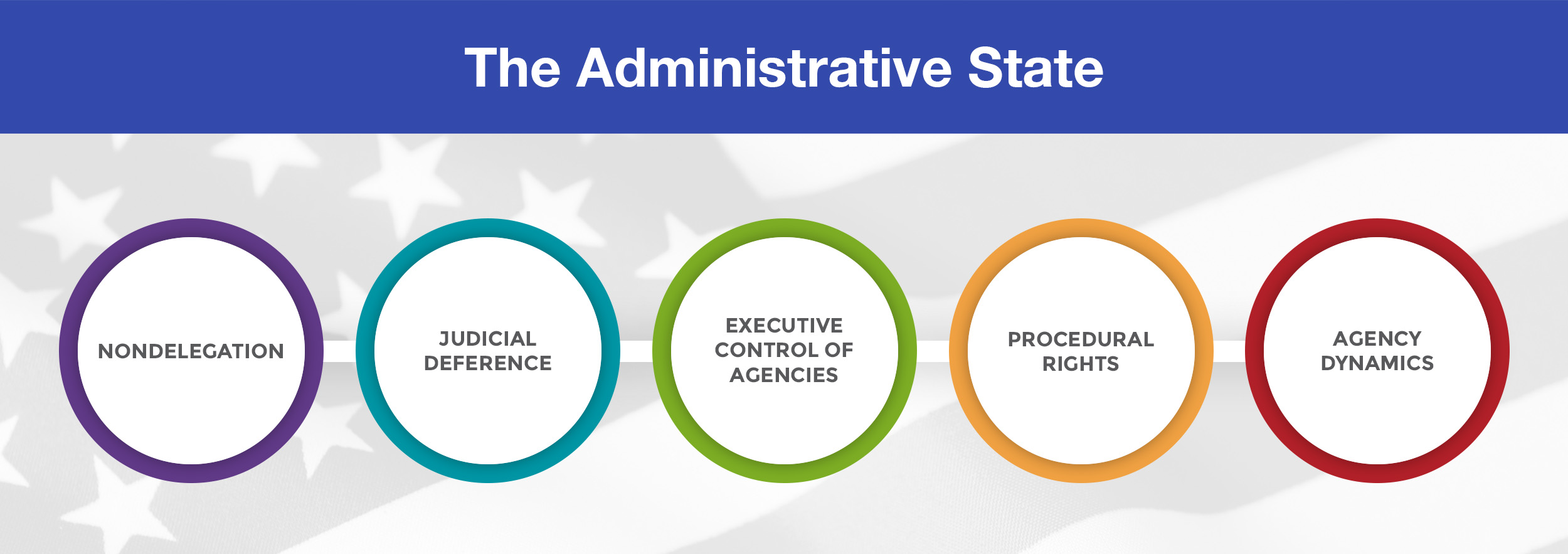Rent seeking

| Administrative State |
|---|
| Read more about the administrative state on Ballotpedia. |
Rent seeking (sometimes hyphenated as rent-seeking) is a term used to refer to the practice of an individual or organization seeking an economic benefit through politics and public policy. Examples of rent-seeking behavior include lobbying for or otherwise supporting the implementation of a favorable regulation, subsidy, or tariff.[1][2][3] The gains obtained from rent seeking may be obtained directly, as in the case of a subsidy benefitting a particular class of firms, or indirectly, as in the case of a new regulation which creates a barrier to entry to a market or industry.[4][5]
Background
Political scientist Paul M. Johnson and economists David R. Henderson and Mark J. Perry have all credited the economist Gordon Tullock with originating the concept that would come to be known as rent seeking in his 1967 article, "The Welfare Costs of Tariffs, Monopolies, and Theft;" however, Tullock did not use the term at the time.[1][2][3] Tullock argued that competition among firms through lobbying and political expenditures for tariffs and policies that promote monopolization is economically inefficient, even if some individual firms can gain in real terms from successful lobbying efforts.[6][1]
David Henderson has credited economist Anne Krueger with introducing the term rent seeking in a 1974 article, "The Political Economy of the Rent-Seeking Society."[1] In her article, Krueger discussed competition among firms in India and Turkey for import licenses as examples of rent-seeking behavior. She argued that the use of import licenses encouraged rent seeking and that the costs of rent-seeking activities are inefficient.[7]
Examples of rent seeking behavior
In A Glossary of Political Economy Terms, political scientist Paul M. Johnson gave the following examples of rent seeking:[2]
| " | Examples of rent-seeking behavior would include all of the various ways by which individuals or groups lobby government for taxing, spending and regulatory policies that confer financial benefits or other special advantages upon them at the expense of the taxpayers or of consumers or of other groups or individuals with which the beneficiaries may be in economic competition.[8] | ” |
| —Paul M. Johnson, A Glossary of Political Economy Terms[2] | ||
Both Investopedia, an online financial and business encyclopedia, and Ben Casselman, writing for FiveThirtyEight in 2016, have argued that occupational licensing laws are often the result of rent-seeking behavior by incumbent firms. Both sources argue that licensing laws impose a barrier to entry on a particular industry or profession, making it more difficult for newcomers to enter and compete in an established market, and that in many cases this barrier may not be desirable.[9][4]
According to Anne Krueger, rent seeking may or may not be legal, depending on the form that it takes:[7]
| " | In many market-oriented economies, government restrictions upon economic activity are pervasive facts of life. These restrictions give rise to rents of a variety of forms, and people often compete for the rents. Sometimes, such competition is perfectly legal. In other instances, rent seeking takes other forms, such as bribery, corruption, smuggling, and black markets.[8] | ” |
| —Anne Krueger, "The Political Economy of the Rent-Seeking Society" (1974)[7] | ||
See also
- Barrier to entry
- Bootleggers and Baptists
- Compliance costs
- Public choice analysis
- Regulatory capture
External links
- "The Welfare Costs of Tariffs, Monopolies, and Theft," by Gordon Tullock (1967)
- "The Political Economy of the Rent-Seeking Society," by Anne Krueger (1974)
- Search Google News for this topic
Footnotes
- ↑ 1.0 1.1 1.2 1.3 Library of Economics and Liberty, "Rent Seeking," accessed September 1, 2017
- ↑ 2.0 2.1 2.2 2.3 A Glossary of Political Economy Terms, "Rent-seeking behavior," accessed September 1, 2017
- ↑ 3.0 3.1 American Enterprise Institute, "Rent-seeking: A significant cost of protectionism that doesn't show up in the standard economic analysis of tariffs," August 7, 2017
- ↑ 4.0 4.1 Investopedia, "Rent-Seeking," accessed September 4, 2017
- ↑ Economic Times, "Definition of 'Rent Seeking,'" accessed September 1, 2017
- ↑ Western Economic Journal, "The Welfare Costs of Tariffs, Monopolies, and Theft," June 1967
- ↑ 7.0 7.1 7.2 American Economic Review, "The Political Economy of the Rent-Seeking Society," June 1974
- ↑ 8.0 8.1 Note: This text is quoted verbatim from the original source. Any inconsistencies are attributable to the original source.
- ↑ FiveThirtyEight, "The Rent-Seeking Is Too Damn High," February 5, 2016
| |||||||||||


